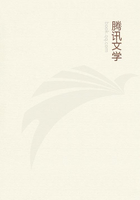
第13章 FISHING THEN AND NOW(2)
His were spliced,and kept up all through the season,as he had his water at his own door,while Walton trudged to the Lee and other streams near London,when he was not fishing the Itchen,or Shawford Brook.The Angler's Vade Mecum recommends eighteen-feet rods:preferring a fir butt,fashioned by the arrow-maker,a hazel top,and a tip of whalebone.This authority,even more than Walton,deals in mysterious 'Oyntments'of gum ivy,horse-leek,asafoetida,man's fat,cat's fat,powdered skulls,and grave earth.A ghoulish body is the angler of the Vade Mecum.He recommends up-stream fishing,with worm,in a clear water,and so is a predecessor of Mr.Stewart.'When you have hooked a good fish,have an especial care to keep the rod bent,lest he run to the end of the line'(he means,as does Walton,lest he pull the rod horizontal)'and break either hook or hold.'An old owner of my copy adds,in manuscript,'And hale him not to near ye top of the water,lest in flaskering he break ye line.'
This is a favourite device of sea trout,which are very apt to 'flasker'on the top of the water.The Vade Mecum,in advance of Walton on this point,recommends a swivel in minnow-fishing:but has no idea of an artificial minnow of silk.Ihave known an ingenious lady who,when the bodies of her phantom minnows gave out,in Norway,supplied their place successfully with bed-quilting artfully sewn.In fact,anything bright and spinning will allure fish,though in the upper Ettrick,where large trout exist,they will take the natural,but perhaps never the phantom or angel minnow.Ionce tried a spinning Alexandra fly over some large pond trout.They followed it eagerly,but never took hold,on the first day;afterwards they would not look at it at all.The Vade Mecum man,like Dr.Hamilton,recommends a light fly for a light day,a dark fly for a dark day and dark weather;others hold the converse opinion.Every one agrees that the smallness of the flies should be in proportion to the lowness of the water and the advance of summer.{7}
Our ancestors,apparently,used only one fly at a time;in rapid rivers,with wet fly,two,three,or,in lochs like Loch Leven,even four are employed.To my mind more than two only cause entanglements of the tackle.The old English anglers knew,of course,little or nothing of loch fishing,using bait in lakes.The great length of their rods made reels less necessary,and they do not seem to have waded much.A modern angler,casting upwards,from the middle of the stream,with a nine-foot rod,would have astonished Walton.They dealt with trout less educated than ours,and tooled with much coarser and heavier implements.They had no fine scruples about bait of every kind,any more than the Scots have,and Barker loved a lob-worm,fished on the surface,in a dark night.He was a pot-fisher,and had been a cook.He could catch a huge basket of trout,and dress them in many different ways,--broyled,calvored hot with antchovaes sauce,boyled,soused,stewed,fried,battered with eggs,roasted,baked,calvored cold,and marilled,or potted,also marrionated.Barker instructs my Lord Montague to fish with salmon roe,a thing prohibited and very popular in Scotland.'If I had known it but twenty years agoe,I would have gained a hundred pounds onely with that bait.I am bound in duty to divulge it to your Honour,and not to carry it to my grave with me.I do desire that men of quality should have it that delight in that pleasure:the greedy angler will murmur at me,but for that I care not.'
Barker calls salmon roe 'an experience I have found of late:the best bait for a trout that I have seen in all my time,'and it is the most deadly,in the eddy of a turbid water.
Perhaps trout would take caviare,which is not forbidden by the law of the land.Any unscrupulous person may make the experiment,and argue the matter out with the water-bailie.
But,in my country,it is more usual to duck that official,and go on netting,sniggling,salmon-roeing,and destroying sport in the sacred name of Liberty.
Scots wha fish wi'salmon roe,Scots wha sniggle as ye go,Wull ye stand the Bailie?No!
Let the limmer die!
Now's the day and now's the time,Poison a'the burns wi'lime,Fishing fair's a dastard crime,We're for fishing FREE!
'Ydle persones sholde have but lyttyl mesure in the sayd disporte of fysshyng,'says our old Treatise,but in southern Scotland they have left few fish to dysporte with,and the trout is like to become an extinct animal.Izaak would especially have disliked Fishing Competitions,which,by dint of the multitude of anglers,turn the contemplative man's recreation into a crowded skirmish;and we would repeat his remark,'the rabble herd themselves together'(a dozen in one pool,often),'and endeavour to govern and act in spite of authority.'
For my part,had I a river,I would gladly let all honest anglers that use the fly cast line in it,but,where there is no protection,then nets,poison,dynamite,slaughter of fingerlings,and unholy baits devastate the fish,so that 'Free Fishing'spells no fishing at all.This presses most hardly on the artisan who fishes fair,a member of a large class with whose pastime only a churl would wish to interfere.
We are now compelled,if we would catch fish,to seek Tarpon in Florida,Mahseer in India:it does not suffice to 'stretch our legs up Tottenham Hill.'
Footnotes:
{1}The MS.was noticed in The Freebooter,Oct.18,1823,but Sir Harris Nicolas could not find it,where it was said to be,among the Lansdowne MSS.
{2}The quip about 'goods and chattels'was revived later,in the case of a royal mistress.
{3}Sir Walter was fond of trout-fishing,and in his Quarterly review of Davy's Salmonia,describes his pleasure in wading Tweed,in 'Tom Fool's light'at the end of a hot summer day.In salmon-fishing he was no expert,and said to Lockhart that he must have Tom Purdie to aid him in his review of Salmonia.The picturesqueness of salmon-spearing by torchlight seduced Scott from the legitimate sport.
{4}There is an edition by Singer,with a frontispiece by Wainewright,the poisoner.London,1820.
{5}Nicolas,I.clv.
{6}Barker's Delight;or,The Art of Angling.1651,1657,1659,London.
{7}I have examined all the Angling works of the period known to me.Gilbert's Angler's Delight (1676)is a mere pamphlet;William Gilbert,gent.pilfers from Walton,without naming him,and has literally nothing original or meritorious.The book is very scarce.My own copy is 'uncut,'but incomplete,lacking the directions for fishing 'in Hackney River.'
Gervase Markham,prior to Walton,is a compiler rather than an original authority on angling.
End